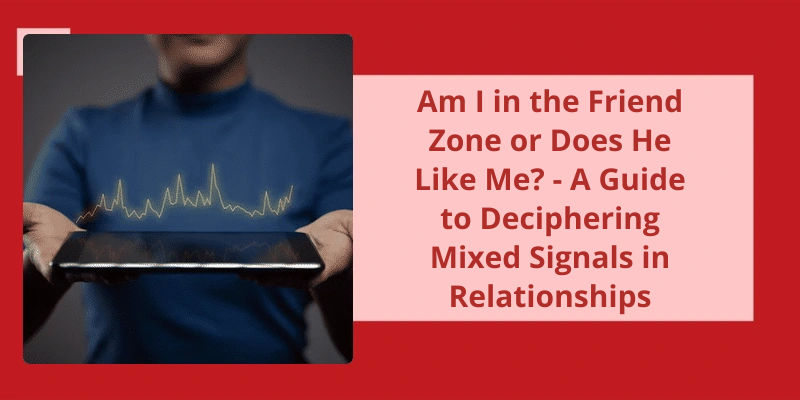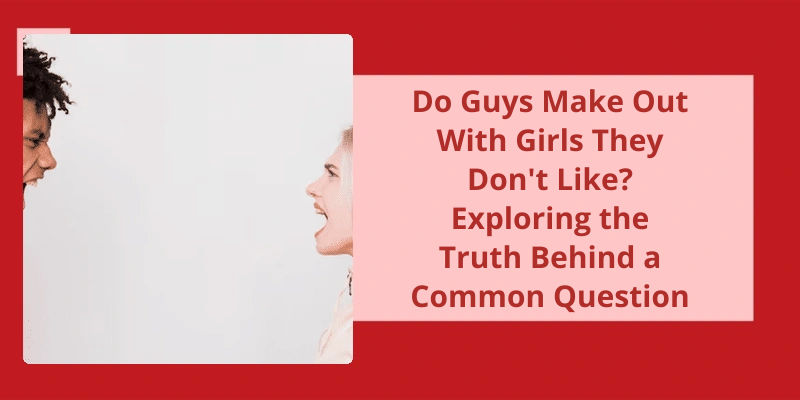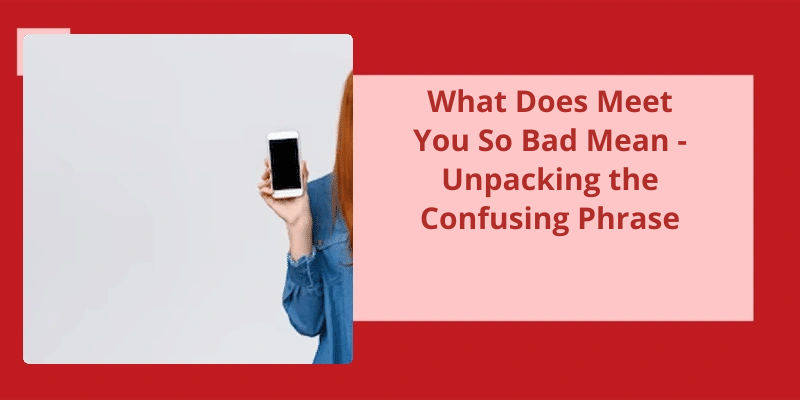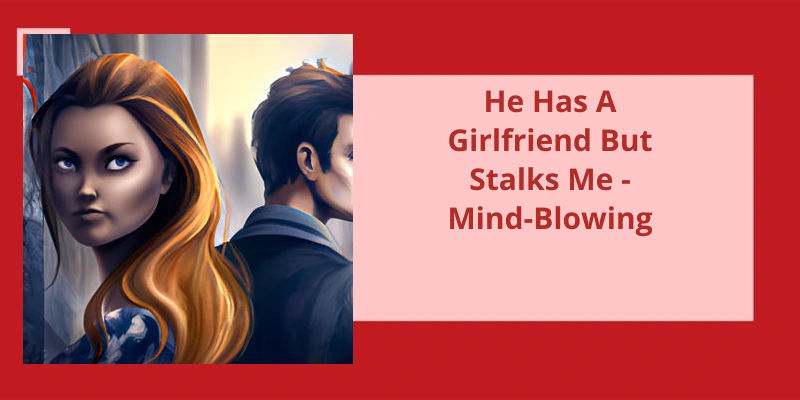Have you ever found yourself in that confusing space between friendship and romance? It can be difficult to navigate the feelings, actions, and signals of a potential crush, especially if you're not sure where they stand. One question that often comes up in these situations is, "Am I in the friend zone or does he like me?" While there isn't always a clear-cut answer, there are some signs and behaviors to keep an eye out for. For example, if your crush is shy around you or if they frequently touch or playfully tease you, those could be signs of attraction. On the other hand, if they invite others along on outings with you or frequently ask you for favors, that could indicate that you're seen as a friend rather than a potential partner. It's important to approach these situations with honesty and communication, allowing yourself to express your feelings and getting a clear understanding of where your crush stands as well.
Is It Possible to Get Out of the Friend Zone With a Guy?
Firstly, it’s important to identify whether the guy you’re interested in is just a friend or if there are deeper feelings present. If you suspect that he may have feelings for you too, look out for subtle signs like prolonged eye contact, flirtatious behavior or body language that suggests attraction.
However, if you’re unsure about his feelings, it’s always best to be direct and communicate your intentions clearly. This may involve taking a risk and confessing your feelings upfront or asking him out on a casual date to gauge his level of interest. It may be nerve-wracking, but being honest and open can often lead to the best results.
Another key factor to consider is how you’ve been interacting with this guy up until now. If you’ve been strictly platonic in your interactions, it may be harder to transition into a romantic relationship. On the other hand, if you’ve already been engaging in flirty banter or physical touch, this may help to pave the way for a more romantic relationship.
It’s also important to be aware of any potential obstacles and challenges that may arise when trying to move out of the friend zone. These may include his reluctance to risk the friendship, fear of rejection or other external factors that are beyond your control.
Ultimately, getting out of the friend zone with a guy requires patience, communication, and a willingness to take a risk. There’s no guarantee of success, but if you’re genuine in your intentions and willing to put in the effort, there’s always a chance that you can move beyond just being friends.
Now that we’ve a clear understanding of what the friend zone entails, let’s dive into the age-old question: is the friend zone a form of rejection? While opinions on the matter may vary, it’s worth examining this concept a little more closely to try and shed some light on the issue.
Is Friendzone a Rejection?
Whether or not being “friend zone”d constitutes rejection largely depends on how the person being “friend zone”d perceives the situation. For some people, being denied a romantic relationship with someone they’ve feelings for feels like a rejection, regardless of whether they were explicitly rejected or not. They may feel that by being relegated to a friendship, their feelings arent being taken seriously and they arent being given a fair chance to pursue their romantic interest.
They may see it as a positive thing that theyre able to maintain a friendship with someone they care about, even if their feelings arent reciprocated. They may feel that being “friend zone”d is an opportunity to get to know the other person better and potentially build a stronger foundation for a future romantic relationship.
If youre interested in pursuing a romantic relationship, it’s important to be clear about your intentions from the outset and to make sure the other person knows how you feel. However, it’s also important to respect their feelings and boundaries, even if they don’t align with your own.
What one person sees as a rejection may be seen as an opportunity for growth and connection by someone else. It’s important to remember that rejection is a normal part of life, and it’s not always a reflection of your worth as a person. Rather, it may simply mean that the other person isnt the right fit for you, and there are plenty of other people out there who’ll appreciate and reciprocate your feelings.
Real-Life Experiences and Perspectives on Being “Friend Zone”d and How It Affected Relationships
- Feeling rejected and frustrated after realizing I was in the “friend zone” with someone I was interested in.
- Trying to stay friends with someone after being friend zoned, but feeling like it was constantly affecting our dynamic.
- Realizing that sometimes people just aren’t attracted to each other in a romantic way, and that it’s okay to move on and find someone who is.
- Finding out that the person who friend zoned me actually had feelings for me too, but didn’t want to risk losing our friendship.
- Learning that communication is key in any relationship, and that it’s important to be honest about your feelings and intentions from the start.
- Reflecting on past experiences and realizing that being “friend zone”d doesn’t define your worth as a person, and that it’s possible to find love and happiness regardless.
Source: What’s the difference between being rejected and being …
The above mentioned signs may indicate that you aren’t in the friend zone with a particular person, but it’s important to keep in mind that every relationship is unique and complex. It’s essential to communicate with your friend or crush to understand their feelings and intentions towards you. In the following section, we will discuss some other signs that suggest you may have escaped the friend zone, and what steps you can take to improve your chances of success in such scenarios.
How Do You Know if You’re Not Friendzoned?
Friendzoning is a painfully tricky situation to navigate, particularly for those who want to explore a romantic relationship with someone only to discover theyre only seen as a friend. But how do you know if youre not in the friend zone? Well, there are many telltale signals to look out for.
If a friend is genuinely interested in you, theyll find everything you say amusing and engaging. Youll never have to struggle to maintain a conversation, and theyll always be invested in what you’ve to say. Theyll listen closely, ask questions, and contribute to the discussion. Youll feel like youre genuinely connecting on a deeper level rather than just talking for the sake of it.
Another clear sign youre not in the friend zone is when your friend starts to compliment you more often. Theyll go out of their way to acknowledge your strengths and qualities, telling you things like “youre a great listener”, “you have an amazing sense of humor”, or “youre incredibly kind”. These compliments will often be spontaneous and genuine, coming from a place of admiration rather than courtesy.
Physical touch is another important indicator that youre not in the friend zone. If your friend starts touching you more often, this could be a particularly promising sign. This physical contact tends to be innocent- think placing a hand on your arm or shoulder or giving you a friendly hug. But it can be a powerful way of communicating affection and interest.
You can also recognize that youre not in the friend zone if your friend goes out of their way to spend time with you. Theyll tell you things like “I really enjoy hanging out with you”, or “I feel like we’ve a special connection”. If theyre always making plans with you or trying to find excuses to be around you, it could be a sign that their feelings for you’re more than just platonic.
Theyll ask questions like, “so, are you seeing anyone lately?” and might even express irritation if you mention a crush you’ve on someone. This type of behavior signifies that theyre struggling to suppress their own romantic feelings for you.
If you’ve been wondering whether a guy has put you in the friend zone, it’s important to understand what the friend zone actually means. Essentially, it refers to a situation where someone sees you strictly as a friend and has no interest in pursuing a romantic or sexual relationship with you. Often, this happens between people who’ve known each other for a long time or who share mutual friends. But how can you tell if you’re in the friend zone with a particular guy? Read on to learn some common signs that may indicate you’ve been friend-zoned.
How Do I Know if a Guy Put Me in the Friendzone?
So, how can you tell if a guy has put you in the friend zone? There are a few telltale signs that suggest he only sees you as a friend. For one, he may constantly talk about other girls and crushes he has, effectively signaling that he doesn’t see you in a romantic or sexual light. Additionally, if he doesn’t touch you in a flirty or romantic way and treats you the same as he’d a male friend, this may also indicate the friend zone.
Another sign to look out for is his reluctance to make plans with you alone. If he only invites you out in group settings or with mutual friends, he may not be interested in anything more than platonic friendship. Similarly, if he doesn’t make any physical advances or flirtatious moves towards you, it’s possible hes just not attracted to you in that way.
It’s important to remember that being in the friend zone isnt necessarily a bad thing. If you value your friendship with this person and don’t want to risk ruining it with a romantic pursuit, it could be best to leave things as they are. However, if you feel strongly that you want to pursue a more romantic relationship, it’s important to communicate your feelings clearly and honestly. Be prepared for the possibility of rejection, but also be open to the idea that the other person may also reciprocate your feelings.
While this conversation may be uncomfortable, it’s better to know for certain rather than spending months or years wondering what could have been. Remember to approach the conversation with a clear head and an open heart, and be prepared for whatever answer may come your way.
Transition paragraph: As society continues to evolve with new dating norms and expectations, the concept of the friend zone has become increasingly prevalent. However, the term itself can be misleading and often used to describe situations where there may not actually be a friendship present. In this article, we will explore the nuances of the friend zone and how to differentiate between true friendship and romantic interest.
Is It Friend Zone or Interested?
Theres a lot of talk online about being stuck in the “friend zone,” but the truth is, it’s a myth. This notion that someone can put you in a zone from which theres no return ignores the fact that genuine connections with people cant be forced in either direction. If someone doesn’t see you as a romantic partner, it’s not because theyve relegated you to some zone, it’s just because they don’t feel that way about you.
It’s understandable to feel frustrated if you’ve feelings for someone who doesn’t share them, but rather than trying to analyze whether or not youre in the “friend zone,” it’s better to look at the situation realistically. Are you genuinely compatible as friends? Is your connection meaningful beyond just wanting a romantic relationship? If not, it might be time to reassess whether or not this person is someone you really want to invest your time and energy into.
Of course, it’s also possible that the person youre interested in does see you as more than a friend. If they go out of their way to spend time with you, try to get to know you on a deeper level, and show signs of physical affection, it’s likely that they’ve feelings for you. In this case, it’s up to you to decide whether or not you reciprocate those feelings.
Ultimately, whether someone sees you as a friend or a potential romantic partner is out of your control. All you can do is be honest with yourself about your own feelings and communicate them openly with the other person. It’s important not to put pressure on the other person to reciprocate your feelings, but rather to allow any relationship to develop organically.
In closing, the idea of the “friend zone” is a flawed one. While it’s natural to feel frustrated when youre interested in someone who doesn’t feel the same way, it’s important to remember that no one can be forced to have romantic feelings. If youre genuinely interested in someone, focus on building a meaningful connection with them regardless of the label that society puts on your relationship.
Tips for Coping With Rejection When Someone Just Wants to Be Friends
- Remember that rejection isn’t a personal attack
- Recognize that it’s better to have a friend than no one at all
- Take time to reflect on why you’re feeling rejected
- Don’t pressure the person to change their mind
- Try to focus on other friendships and activities
- Be kind to yourself and practice self-care
- Remember that there are many people in the world to be friends with
Navigating the confusing world of romance can be difficult, and many of us have experienced the sting of being friendzoned. But how do you know when you’re in that dreaded zone? There are a few indicators to look out for, such as avoiding alone time with you and discouraging any romantic gestures. If you start to notice these signs, it may be time to accept that you’re not going to progress beyond friendship with this person.
How Do You Act When You Get Friendzoned?
Friendzoning is a common occurrence in the dating world and can be a difficult experience for those who find themselves on the receiving end. It’s important to understand that being friendzoned isn’t a reflection of your worth as a person and shouldn’t be taken personally.
One of the first signs that you may be getting friendzoned is when the person you’re interested in avoids spending time alone with you. They may bring other friends along to outings that were meant to be one-on-one or may constantly cancel plans to hang out. This could be an indication that they see you as just a friend and aren’t interested in pursuing anything romantic.
Another red flag is when the person shuts down any kind of flirting or romantic talk. They may start talking about their type, giving you a clear indication that you don’t fit the mold. This is a subtle way of letting you know that they aren’t interested in anything beyond friendship. While it may be disappointing, it’s important to listen to what they’re saying and respect their boundaries.
In some cases, the person may start treating you more like a sibling than a romantic interest. They may confide in you about their love life or ask for advice on other relationships. This could be a sign that they see you as a friend and nothing more. It can be difficult to accept, but it’s important to remember that not everyone is meant to be in a romantic relationship.
It may be tempting to try and change someones mind, but this rarely works and can lead to further heartache. Instead, express how you feel and respect their decision. It may be difficult at first, but over time, you’ll find that moving on is the healthiest choice for both parties involved.
Being friendzoned isn’t the end of the world. It may be a difficult experience, but it can also be an opportunity for personal growth and self-discovery. Take the time to reflect on what you want in a relationship and focus on building meaningful connections with people who share your values and interests. Friendships can be just as valuable as romantic relationships, and in some cases, they can even turn into something more. Keep an open mind and an open heart, and you never know what the future may hold.
How to Avoid Getting Friendzoned in the First Place
Here are some tips to avoid getting friendzoned:
1. Be clear about your intentions from the beginning
2. Flirt and show your romantic interest
3. Make sure to spend alone time together, rather than just in group settings
4. Don’t always be available and make your time together feel special
5. Communicate openly and honestly about your feelings.
Conclusion
In conclusion, determining whether you're in the friend zone or if someone likes you can be difficult and nerve-wracking. However, there are certain signs and behaviors that can be observed and analyzed to gain insight. It's important to pay attention to how someone interacts with you, such as their level of shyness or playfulness, and whether they frequently make physical contact with you. Additionally, taking note of whether you engage in solo activities or if they frequently invite others to join can be telling. Ultimately, it's best to communicate openly and honestly with the person to determine where you stand in their eyes and to avoid misinterpretation of their actions.






